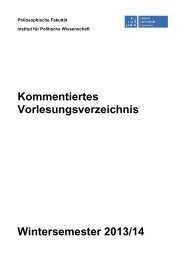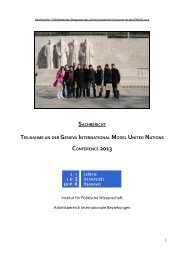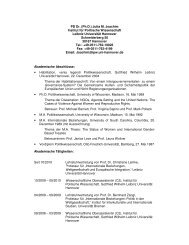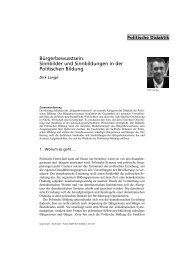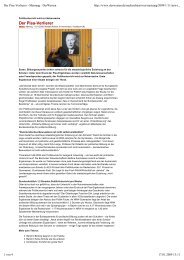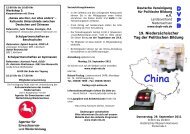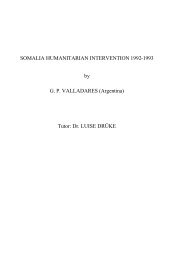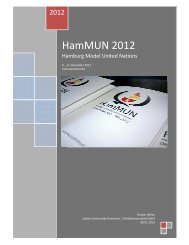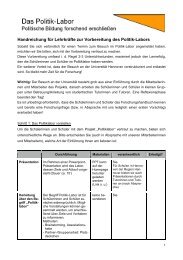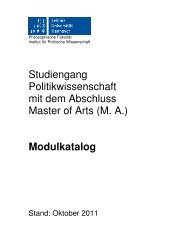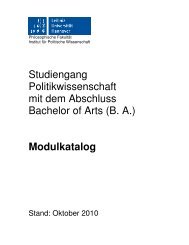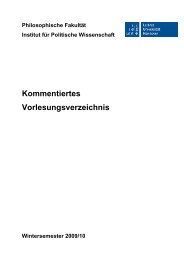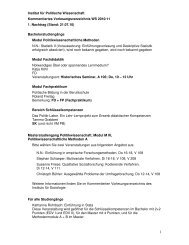Preventive Action for Refugee Producing Situations
Preventive Action for Refugee Producing Situations
Preventive Action for Refugee Producing Situations
You also want an ePaper? Increase the reach of your titles
YUMPU automatically turns print PDFs into web optimized ePapers that Google loves.
10<br />
office. The Under Secretary-General responsible has already<br />
undertaken several missions using the political authority of the<br />
Secretary-General <strong>for</strong> mediating between countries of origin of new<br />
massive refugee situations such as Burma/ Bangladesh and the Horn of<br />
Africa.<br />
The creation of this new Department and the strengthening of<br />
UNHCRs role in country of origin in<strong>for</strong>mation and preventive<br />
protection has gone hand in hand.<br />
Early warning in<strong>for</strong>mation seemed, even at the time of writing<br />
four years ago, a task falling totally outside UNHCR's activities. Now<br />
it is well recognized to be an important tool <strong>for</strong> identifying developing<br />
refugee situation emergencies, not only <strong>for</strong> preparedness but also <strong>for</strong><br />
prevention through mediation and conflict resolution. In 1989/1990, I<br />
was responsible <strong>for</strong> coordinating the drawing up of the initial elements<br />
to warn the Office about possible refugee flows so that appropriate<br />
measures could be taken, which were integrated into UNHCR's<br />
<strong>Refugee</strong> Emergency Alert System (REAS). Simultaneously<br />
preparations were made <strong>for</strong> UNHCR to start cooperating within an<br />
inter-agency framework on developing a UN early warning<br />
mechanism. Around the same time the internal UNHCR Task Force on<br />
Early Warning was set up, which is now chaired by the Deputy High<br />
Commissioner.<br />
In an evaluation of UNHCR's protection, an internal working<br />
group suggested that, in view of the importance of early warning <strong>for</strong><br />
the development of preventive strategies, UNHCR should strengthen<br />
its capacity <strong>for</strong> early warning and devote adequate resources <strong>for</strong> this<br />
purpose. It also recommended that the UNHCR Task Force on Early<br />
Warning should examine how the current reporting system and<br />
organizational structure of the Office could be better used <strong>for</strong> the<br />
collection, analysis, and dissemination of country of origin in<strong>for</strong>mation<br />
by UNHCR on potential refugee flows as well as on internal<br />
displacement. The group added that UNHCR should continue to<br />
promote the development of an appropriate early warning mechanism<br />
<strong>for</strong> refugee flows within the UN System.<br />
I am happy to report that the realization of the policy propositions<br />
go beyond what I had projected as feasible four years ago. Of course,<br />
it is too early to make an evaluation of the long-term effectiveness of<br />
these new approaches. Nevertheless, these are some initial new models<br />
of interaction and intervention with regard to refugee-producing<br />
situations. I have rewritten Chapter 4 entirely in order to reflect the<br />
slowly emerging cooperative mechanisms between peace-keeping,<br />
peacemaking, political and humanitarian endeavours <strong>for</strong> preventing<br />
new and treating existing<br />
conflict and refugee situations.<br />
Chapter 5 with the legal justification remained the same. In this<br />
chapter, I confronted the often incredibly misused concept of state<br />
sovereignty with the protection of human rights and refugees. The<br />
legal analysis of the international community's capacity to intervene<br />
<strong>for</strong> preventing new refugee situations documents the erosion since<br />
World War II of domestic jurisdiction over human rights abuses. The<br />
use of peace-keeping <strong>for</strong>ces <strong>for</strong> protecting humanitarian operations,<br />
such as in <strong>for</strong>mer Yugoslavia and Somalia, a new approach, which is<br />
discussed in<br />
chapter 4.<br />
The message of the book remains unchanged. The international<br />
community should move <strong>for</strong>cefully now, while almost global<br />
cooperation is possible, since the vanishing of the East-West Conflict,<br />
to institutionalize new preventive and interventionist approaches to<br />
save human lives, prevent future abuses and <strong>for</strong>ced population<br />
displacement. The Cold War may have ended. But wars, internal and<br />
crossborder, are<br />
still very much alive.<br />
For 1993 I plan to write a new book, which will focus on Europe<br />
and new approaches <strong>for</strong> refugee policies and preventive action.<br />
11



